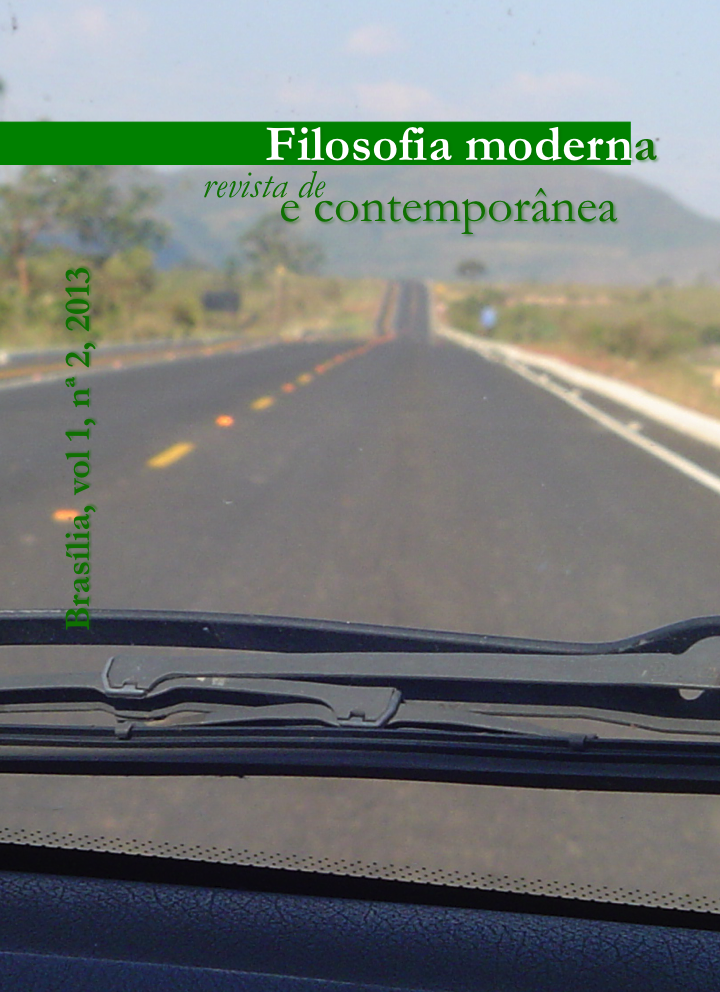Sociologia da ciência: realismo, idealismo e construtivismo
DOI:
https://doi.org/10.26512/rfmc.v1i2.12273Keywords:
Sociology of Science, Idealism, Realism, Charge of electron, ConstructivismAbstract
The neopragmatic turn, overwhelming criticism of the foundational role of knowledge self advocated by philosophy, radical as to include the analytic philosophy, where it originated, is inexorably the current frontier of philosophical knowledge. The coup given to the philosophy and to the reason for neopragmatic movement, however, must be reported as something positive. The reactions raised in defense of philosophy organized themselves around reduced number of conceptual matrix: strong naturalism (Quine,1969), weak naturalism (Habermas,2004), objective idealism (Hosle,1987), contextualism (Rorty,1994). Contributed unquestionably to this outcome, the historical and sociological studies of postKuhnian science, inspired by its philosophy of science. Inserting tangentially in this debate, the object of reflection in this study is to oppose the point of view of the sociology of science to the realism and to the idealism. Our aim is to demonstrate that constructivism featuring your model of inquiry does not denies, as naive or maliciously understand his critics, the decisive role of nature in the construction of science. The strength of our argument will arise from the analysis realized by the exponents of the strong program in the sociology of science, Barry Barnes, David Bloor and John Henry (1996), in the book Scientific Knowledge: a sociological analysis, of a controversial case study of the history of physics: the experiments that the American physicist Robert Millikan conducted to establish the electron charge
Downloads
References
ASPDEN, H. The pointless electron.1997. Disponível em http://www.haroldaspden.com/research-notes/9709.htm: acessado em 15 jul. 2013.
BARNES, B.; BLOOR, D.; HENRY, J. Scientific Knowledge: a sociological analysis. Chicago: The University of Chicago Press, 1996.
DILTHEY, W. Teoria das concepções de mundo. Trad. Artur Morão. Lisboa: Edições 70, [19--].
FRANKLIN, A. The neglet of experiment. Cambrigde: Cambrigde University Press, 1989.
HAACK, S. Defending science: within reason: between scientism and cynicism. New York: Prometheus Books, 2003.
HABERMAS, J. Verdade e justificação. Trad. Milton Mota. São Paulo: Loyola, 2004.
HACKING, I. The social construction of what?Cambrigde and London: Harvard University Press, 2001.
HEMPEL, C. Filosofia da ciência natural.3. ed. Trad. Plínio S. Rocha.Rio de Janeiro: Zahar, 1981.
HENRY, J. A Revolução científica.Trad. Maria Luiza X. de A. Borges. Rio de Janeiro: Jorge Zahar, 1998.
HOLTON, G,“Subelectrons, presuppositions, and the Millithan-Ehrenhaft dispute”.In: HOLTON, G.The scientific imagination. Cambrigde: Cambrigde University Press, 1989. ch. 2.HÖSLE, V. “Begründungsfragen des objektiven idealismus”. In: KÖHLER, W.R.; KUHLMANN, W.; ROHS, P. (Ed.). Philosophie und begründung. Frankfurt am Main: Surkamp, 1987. p. 212”“267.
KANT, I. Crítica da razão pura.Trad. Manuela P. dos Santos e Alexandre F. Morujão. 2. ed. Lisboa: Calouste Gulbenkian, [19--].
KUHN, Thomas.A tensão essencial. Trad. Rui Pacheco. Lisboa: Edições 70, [19--].
KUHN, Thomas. A estrutura das revoluções científicas. 4. ed. Trad. Beatriz Vianna Boeira e Nelson Boeira. São Paulo: Perspectiva,1996.
KUKLA, A. Social constructivism and the philosophy of science.London and New York: Routledge, 2000.
PORTUGAL, P.J.S.C. Experiência de Millikan. Disponível em: http://profs.ccems.pt/PauloPortugal/PHYSICA/Millikan/millikan.htm: acessado em 15 jul. 2013.
QUINE, W. V. O. Ontological relativity and other essays.New York: Columbia University Press, 1969.
RORTY, R. A filosofia e o espelho da natureza.Trad. Antônio Trânsito. Rio de Janeiro: Relume-Dumará, 1994.
SOKAL, A. Imposturas intelectuais.Trad. Max Altman. 2. ed. Rio de Janeiro: Record, 2001.
WITTGENSTEIN, L. Investigações filosóficas.Trad. José Carlos Bruni. 3. ed. São Paulo: Abril Cultural; 1984. (Os Pensadores).
Downloads
Issue
Section
License
Copyright for articles published in this journal is retained by the authors, with first publication rights granted to the journal. By virtue of their appearance in this open access journal, articles are free to use, with proper attribution, in educational and other non-commercial settings.


